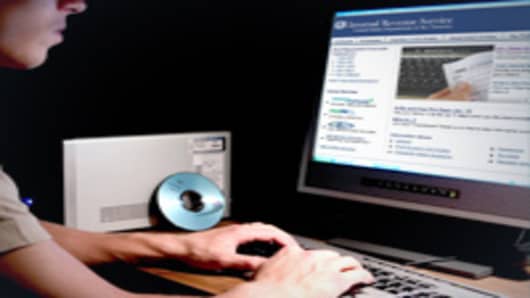Consumers are increasingly comfortable with online bill paying. So it's no surprise that Uncle Sam also wants to cash in on electronic money moving.
Leading the way is the federal agency that has the most direct contact with working Americans: the Internal Revenue Service. Last year, almost 80 million taxpayers filed electronically, many because they were due refunds that were processed more quickly because their tax data were sent online.
Now the IRS is working to convince taxpayers that they, too, should go the electronic route when it comes to paying up. The agency has entered into partnerships with the private sector, including the banking industry, tax software developers and credit card processors, to make tax e-payments more appealing.
Here are the ways you can electronically move your money into the U.S. Treasury.
Electronic funds withdrawal
Individuals who file via computer, either on their own or with the help of a paid preparer, can use electronic funds withdrawal, or EFW. This basically is the reverse of the direct deposit that the IRS recommends for those getting refunds.
_____________________________________
More Stories for the Tax Season:
- Ten Tax Tips
- 2009 Tax Calendar
- Tax Forms & Charts
_____________________________________
When you get to the end of your computer tax-filing chores and find you owe, EFW will be one of your payment choices. Have your checkbook handy -- not to write a check, but to enter some account numbers that the IRS wants. You'll be asked for your personal account number, what type of account it is (savings or checking), and the financial institution's routing number.
If you don't know which set of numerals is the routing number, check with your bank before you e-file -- especially if you're planning to file (and pay) late on the April deadline day. At 11:50 p.m., there won't be anyone at the bank branch to answer your call for help.
In most instances, electronic funds withdrawal is free. But when you call about the routing number, it wouldn't hurt to confirm that your bank or credit union does indeed allow such transfers at no cost.
One nice thing about EFW is that you can decide exactly when your tax payment comes out of your bank account by scheduling the payment -- as long as it's by the April due date. That means you can get the filing paperwork out of the way early and hold on to your cash until the last minute.


